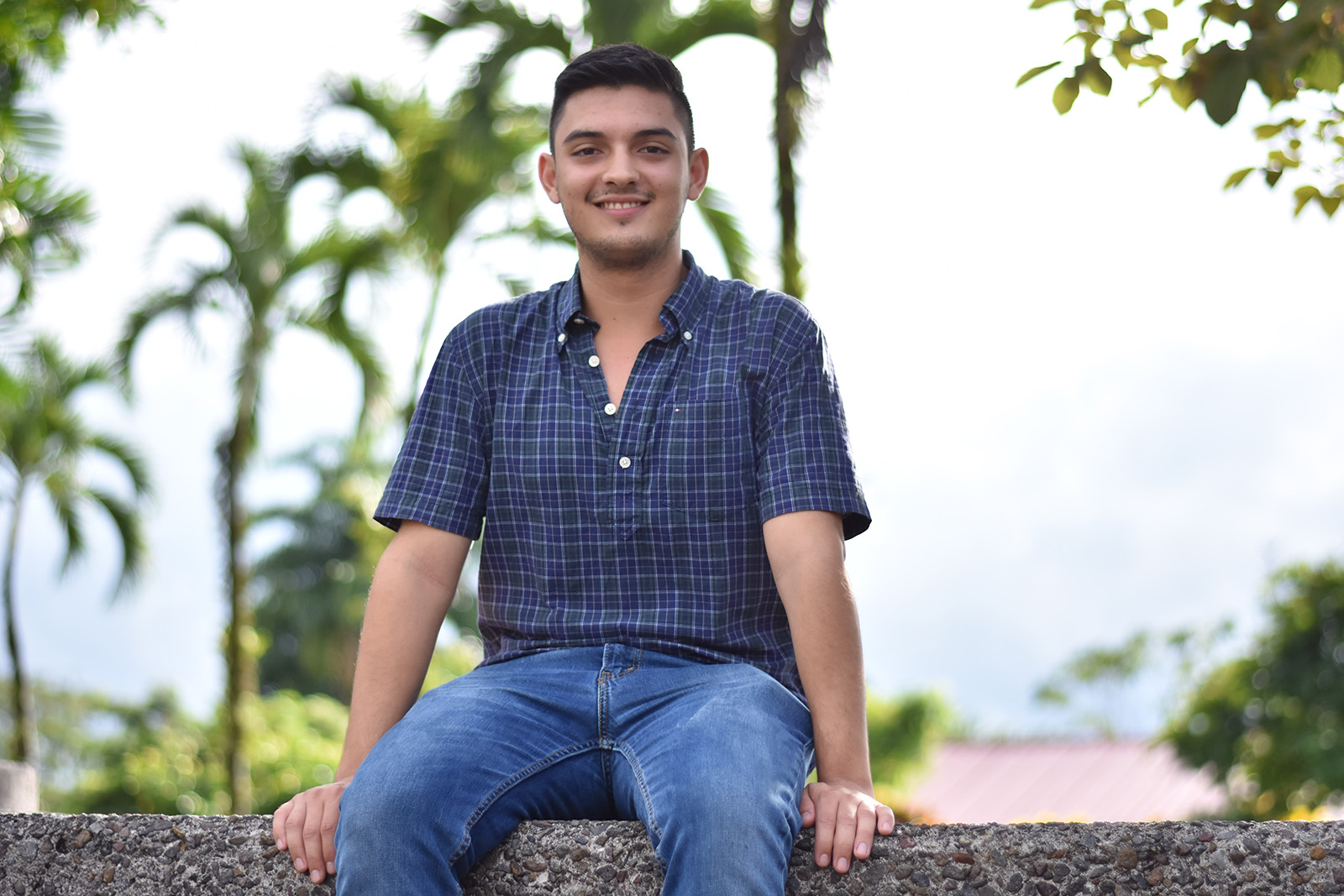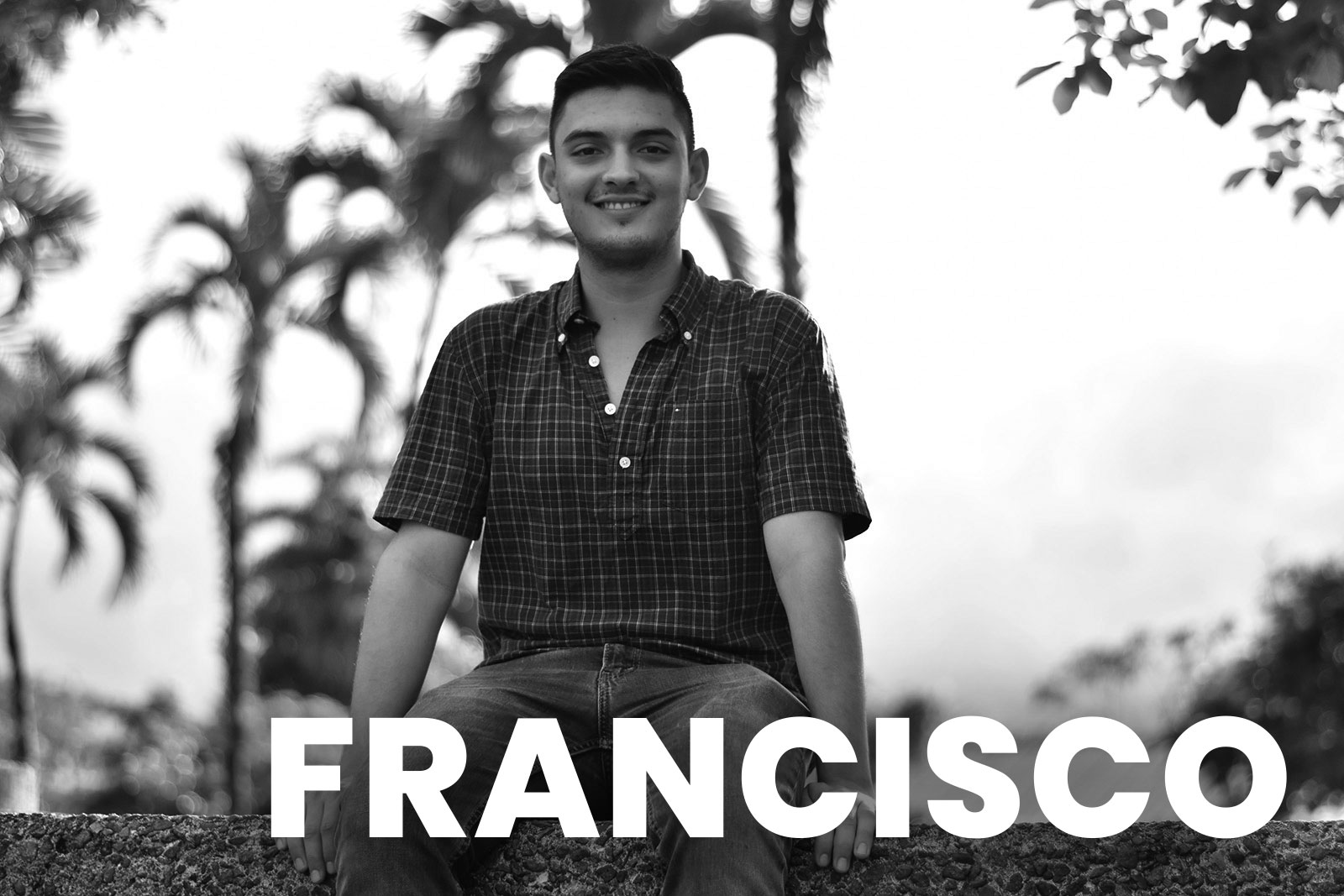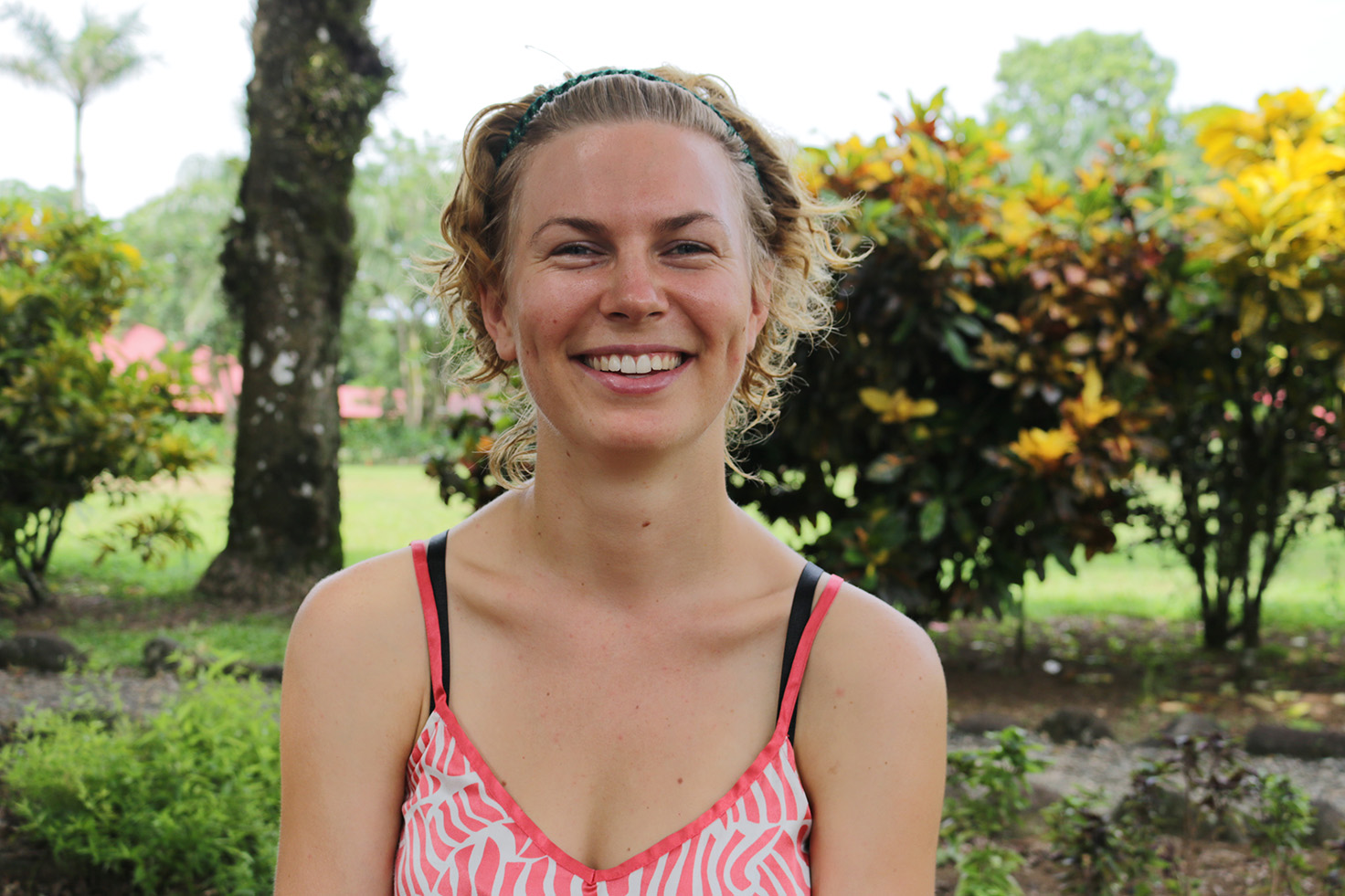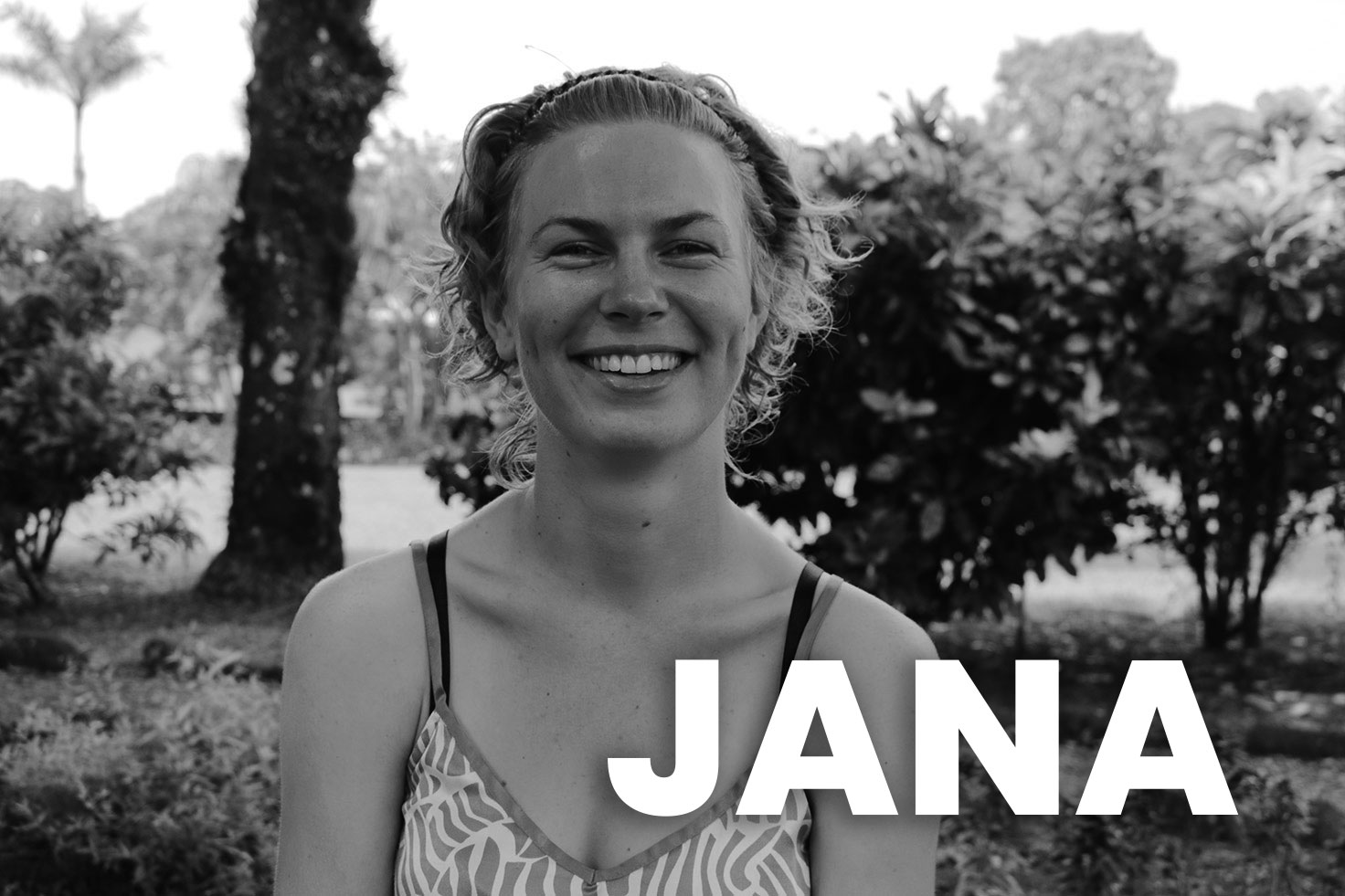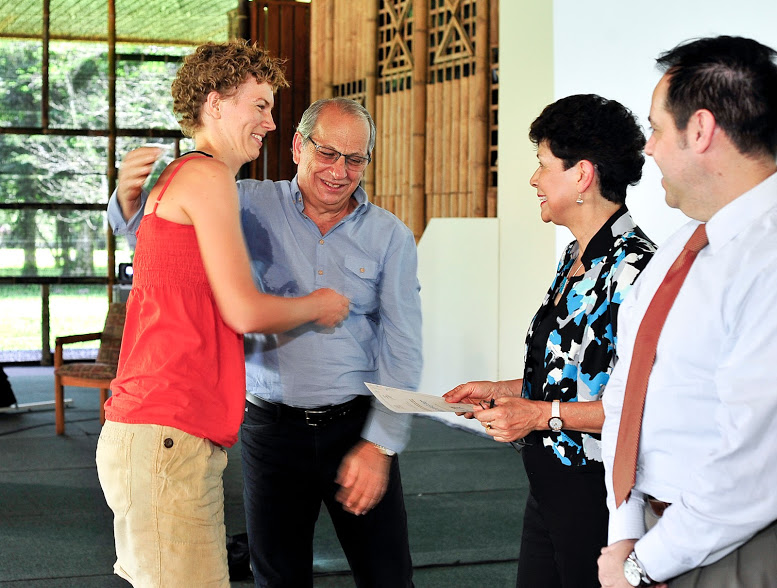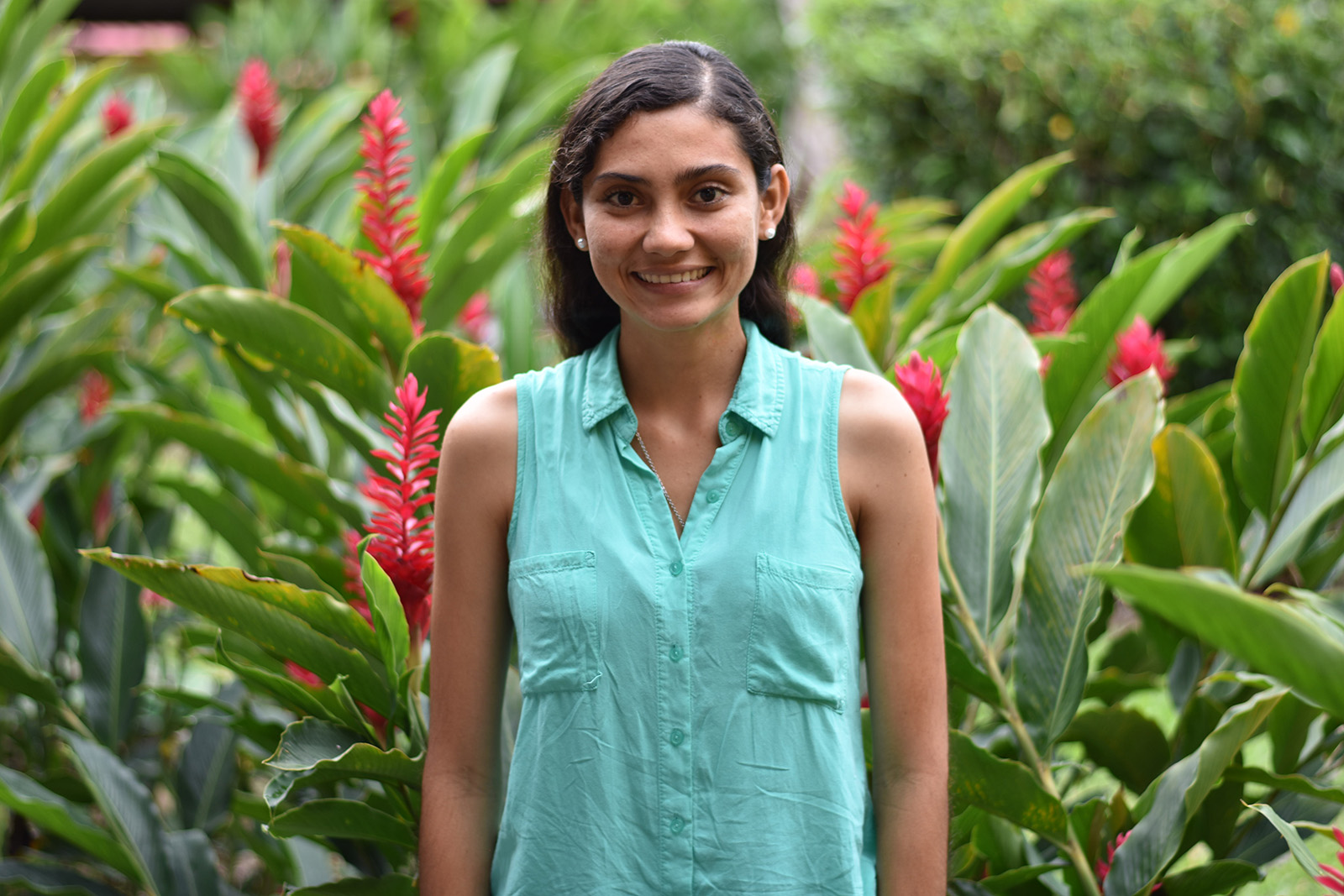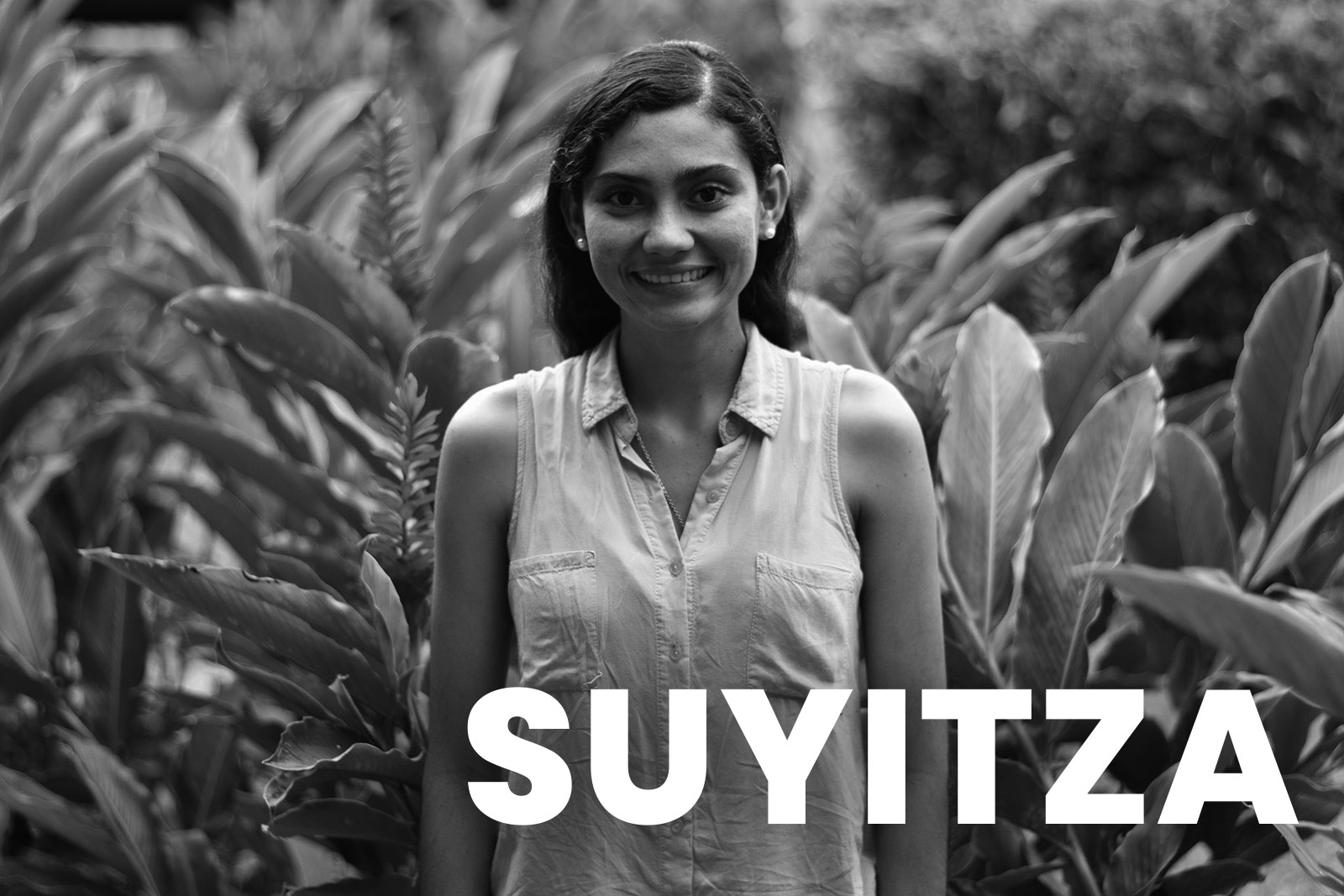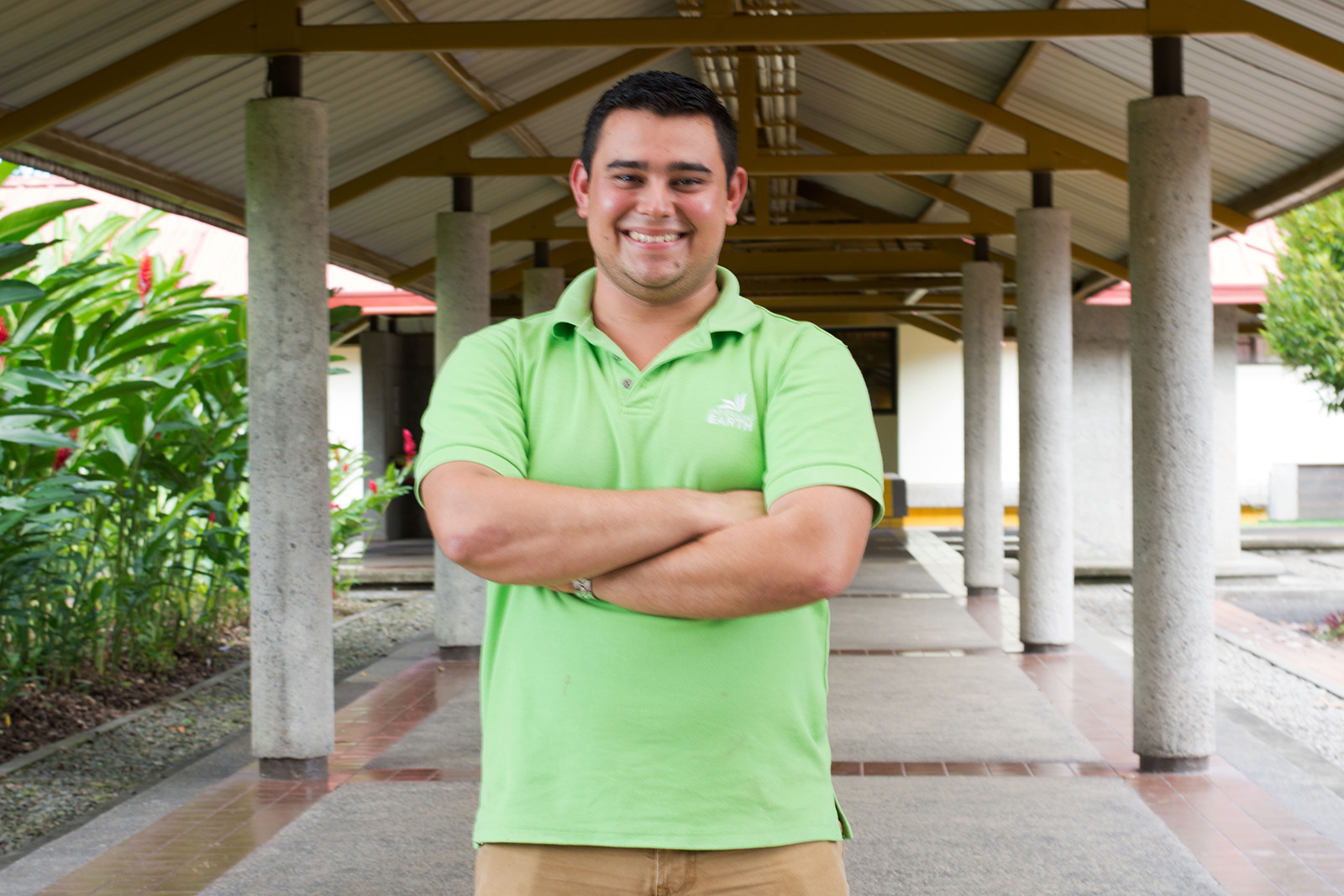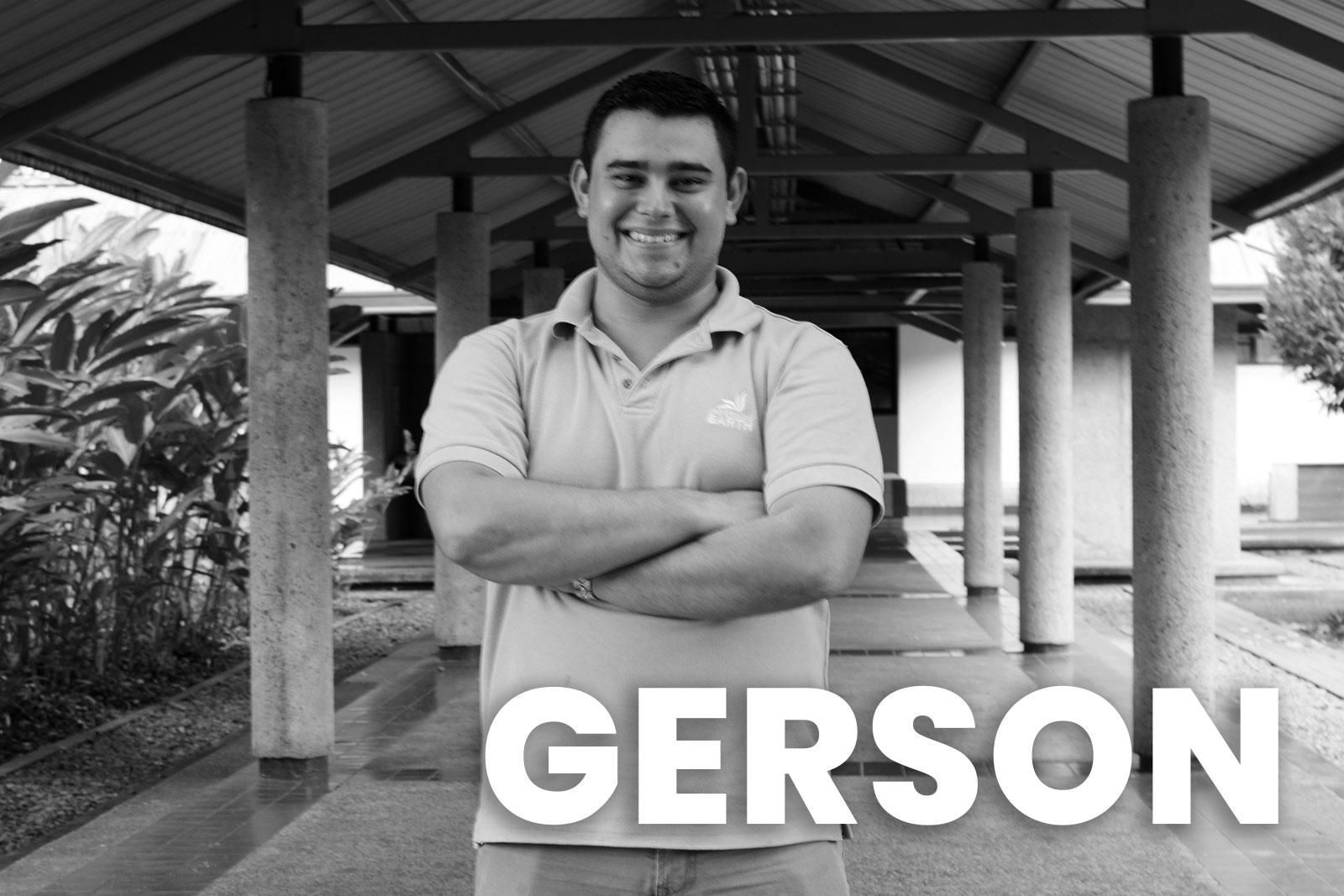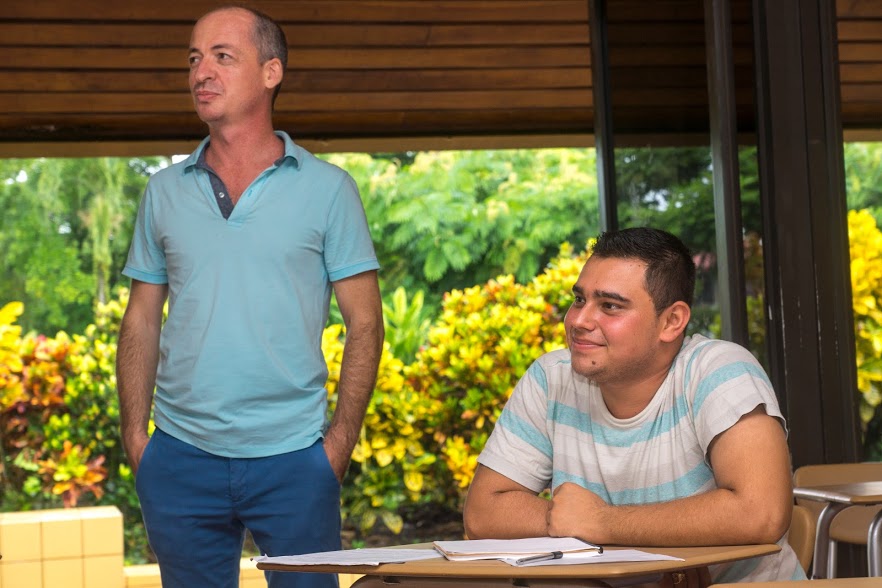Get to know four students from the Class of 2017
Francisco Campos
(‘17, Costa Rica)
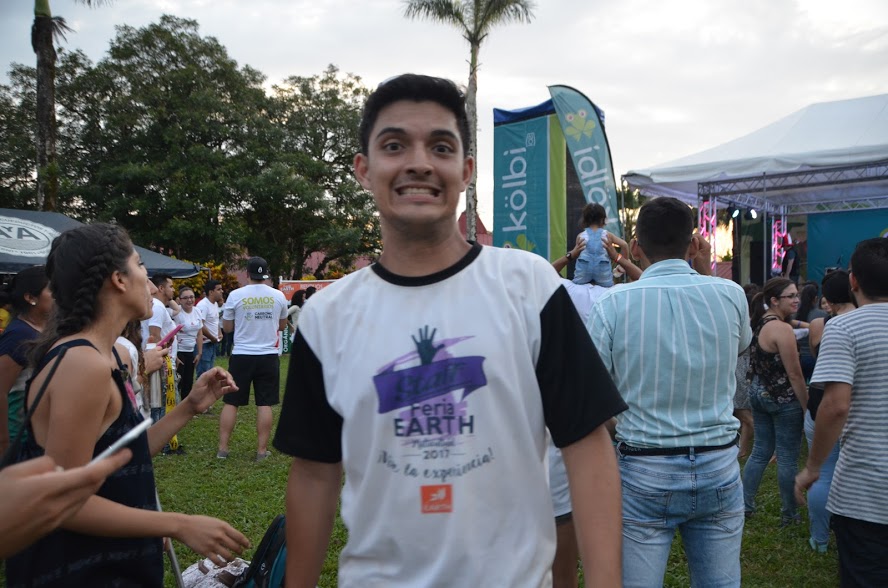
This year, Francisco oversaw the events at the EARTH Multicultural Fair – one of the University’s largest fundraisers to bring students’ parents to graduation.
Why agronomy?
Ever since I was little, I have liked farming. I was always involved in it thanks to my grandpa.
I want to be an agronomist because I have never envisioned myself in any other profession, seated at a desk all day. I see it as a challenge that young people look at me funny when I tell them I want to be in the fields all day. I think they’ve lost touch with the importance of the subject. Without agronomists, we wouldn’t have food to eat, especially now as cities grow more populous and open space is being reduced.
Coming from an urban area, what drew you to agriculture?
Desamparados (now a suburb of San José) hasn’t always been urban. Until about 30 years ago, people were producing a lot of coffee there. At the moment, I still don’t know if I’d like to focus on coffee. My personal goal is to produce, at least, the items we consume at home.
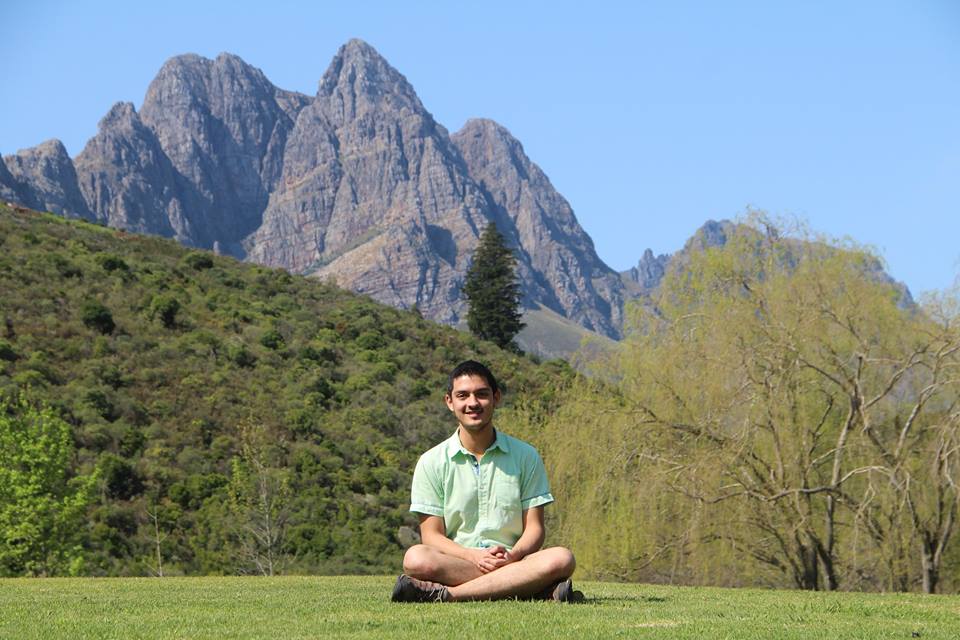
Francisco completed his internship at Stellenbosch University in South Africa, focusing on wine production.
What was the best advice you got while at EARTH?
Funny enough, it wasn’t until the end of my studies. I was really worried about all I had to do and about not knowing what I was going to do after graduating. Someone told me that I should live life one day at a time, to take advantage of each phase of life in its moment. Basically, I was told to “chill out”.
Jana Siimes
(‘17, Sweden)
Tell us about your internship
I went to Málaga, in the south of Spain, where I worked in a research center called IHSM. There I was able to be in the department of subtropical fruits, analyzing different mango varieties.
I was interested in that subject because I had never been within the realm of research. Also, the department’s director was very open to community and social projects and shared the obtained information with developing countries. That was important to me.
What did your graduation project consist of?
I did mine in apiculture (beekeeping). My proposal was a value-added apiary guide with tropical products. I started by compiling information about recipes calling for beeswax, propolis, pollen and honey, and then adapted them to include raw materials from the area. I replaced the foreign ingredients with coconut oil, cacao and tropical fruits. I took what I’d done and made a recipe book. Later, I presented it to CINAT (The Tropical Apiary Research Center) in Heredia, Costa Rica, before a group of beekeepers. I gave them the recipe book, and, in turn, they evaluated it and offered me feedback.
The recipe book’s format was well received. I asked the beekeepers different questions, such as “Which product is most innovative?”, “Which is easiest to make?”, etc. It was interesting because no answer was repeated. I learned the recipe book has a little of everything and the producers’ tastes are distinct.

As part of her extracurricular activities, Jana played saxophone in the musical group Tribu, composed of EARTH students. She is also part of the ensemble that wrote and performed the song for the University’s end-of year video in 2017 (to be released next week).
What was your best experience at the University?
There are many, but the one I have liked most is having been in such a multicultural environment. As a result, I believe I am able to understand different perspectives on reality and have developed respect and tolerance for people with very different viewpoints. I’ve also enjoyed being able to meet so many people from here because I really love Latin America.
Suyitza Juarez
(‘17, Panama), the Mastercard Foundation Scholar.
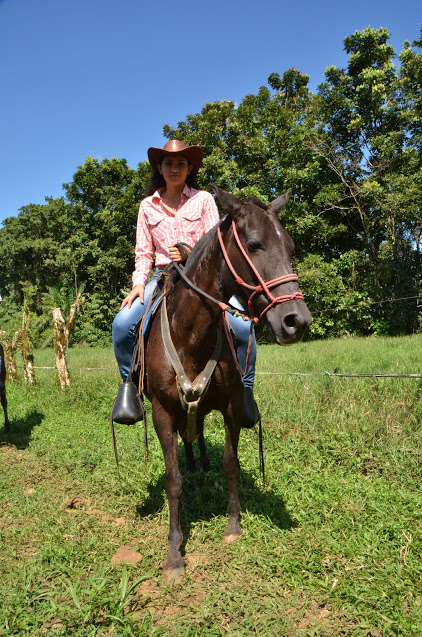
Suyitza is passionate about horses. In fact, growing up on a farm surrounded by animals is what motivated her to become an agronomist.
Tell us about your internship
I traveled to Mexico, where I was in a business called Agroindustrial Palenque. There I worked with beef cattle, buffalo and sheep. I participated in general farm handling, silage projects, a cornfield reseeding, weed and pest control, and machinery coordination. It was good because it gave me the experience of having a job, with real responsibilities and real consequences. It can be a little scary because it’s not a classroom experiment. I liked it a lot because, in addition to growing my technical skills, I grew personally – meeting new people and building new relationships.
What will you do upon graduating?
After graduating, I will work with my family. We have a farm where a lot needs to be done. I am from a rural area where a lot of people look up to me, and I feel, in one way or another, they’ve helped me get to where I am today. I have thought about working on community projects to improve their quality of life – especially in waste management and similar subjects that haven’t been explored at all in my country.
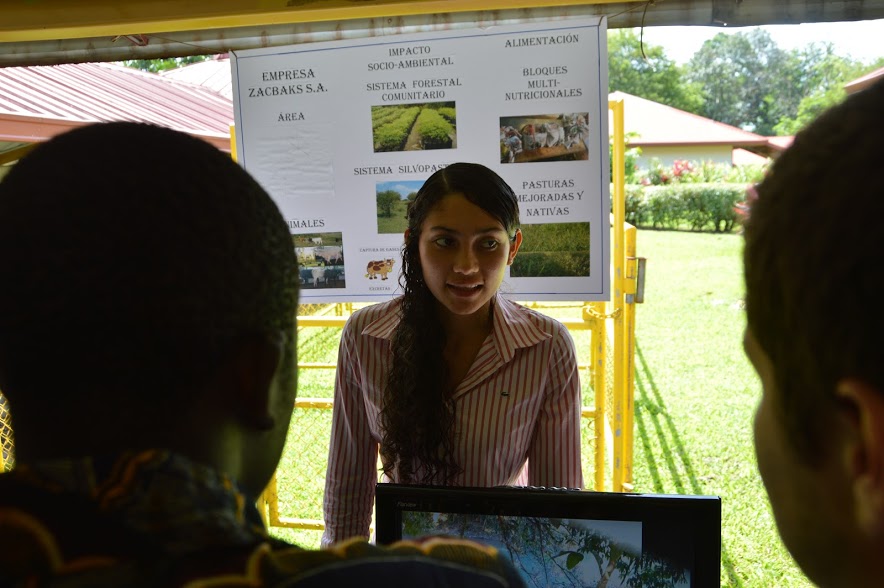
In second year, Suyitza presented about her entrepreneurial project, which focused on animal production.
What is the best advice you’ve received while at the University?
A graduate told me to start friendships with everyone in my class and those of other classes. It’s easier to do this year because, as fourth years, we’re site and project leaders.
Gerson Bringuez
(‘17, Guatemala), the Mastercard Foundation Scholar.

Gerson was always selected to energize social activities. He showcased his big voice, grand charisma and immense talent by emceeing the EARTH Multicultural Fair. .
Tell us about your graduation project
Succulents have a lot to do with the area I am from in Guatemala, called Zacapa. It’s the country’s dry corridor: a thorny, desert mountain with stunning sunsets. I thought cacti could be a big opportunity and believed they were becoming trendy in my country. I did a market study of these plants in Guatemala because it wasn’t enough to just believe they were becoming more popular – I needed to research, to test my hypothesis.
Likewise, it was up to me to identify my product with my people, or at least with the surrounding villages, and create something differentiated. I determined the market, the consumer tastes and the way to distinguish the product, and I determined the opportunity to work with women of the Chortí ethnic group in Guatemala, to improve their quality of life.
What are your thoughts about life after graduation?
I believe I am useful and have a purpose, and that my career has the possibility of helping many people. I have to believe that, through my work, I can create employment and opportunities for young people – similar to the ones I had.
What is the best advice you’ve received while at the University?
It came from my best friend Wladimir (‘17, Ecuador), who said: “Gerson, don’t worry so much. Be happy.” I’m very thankful for that.

